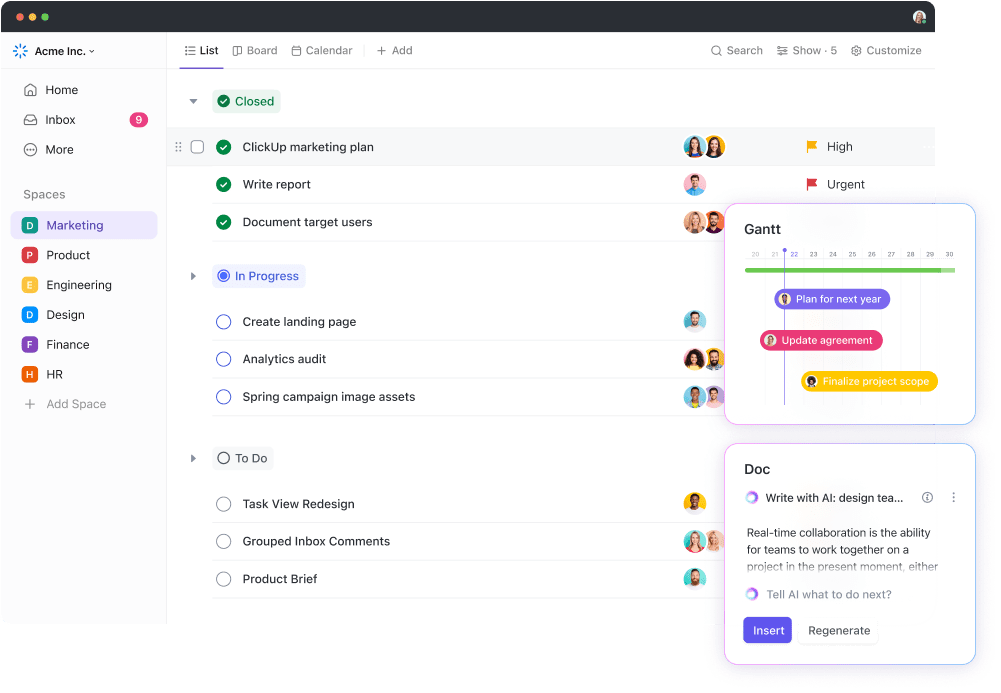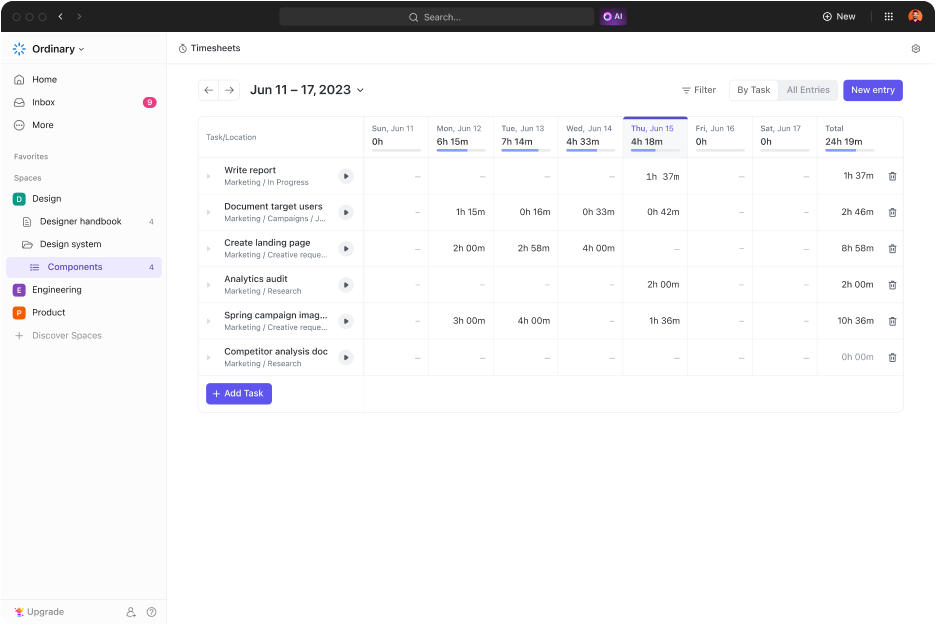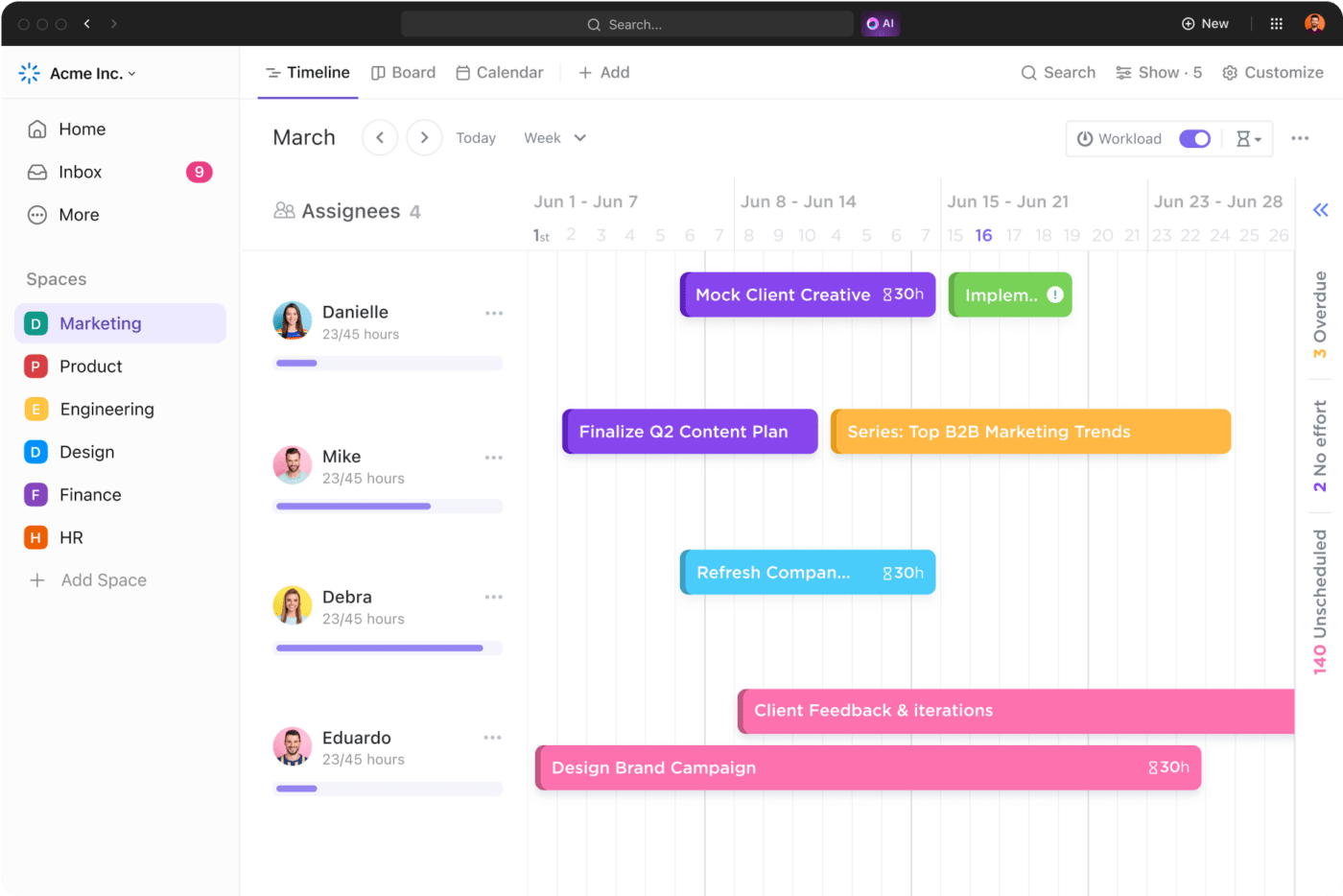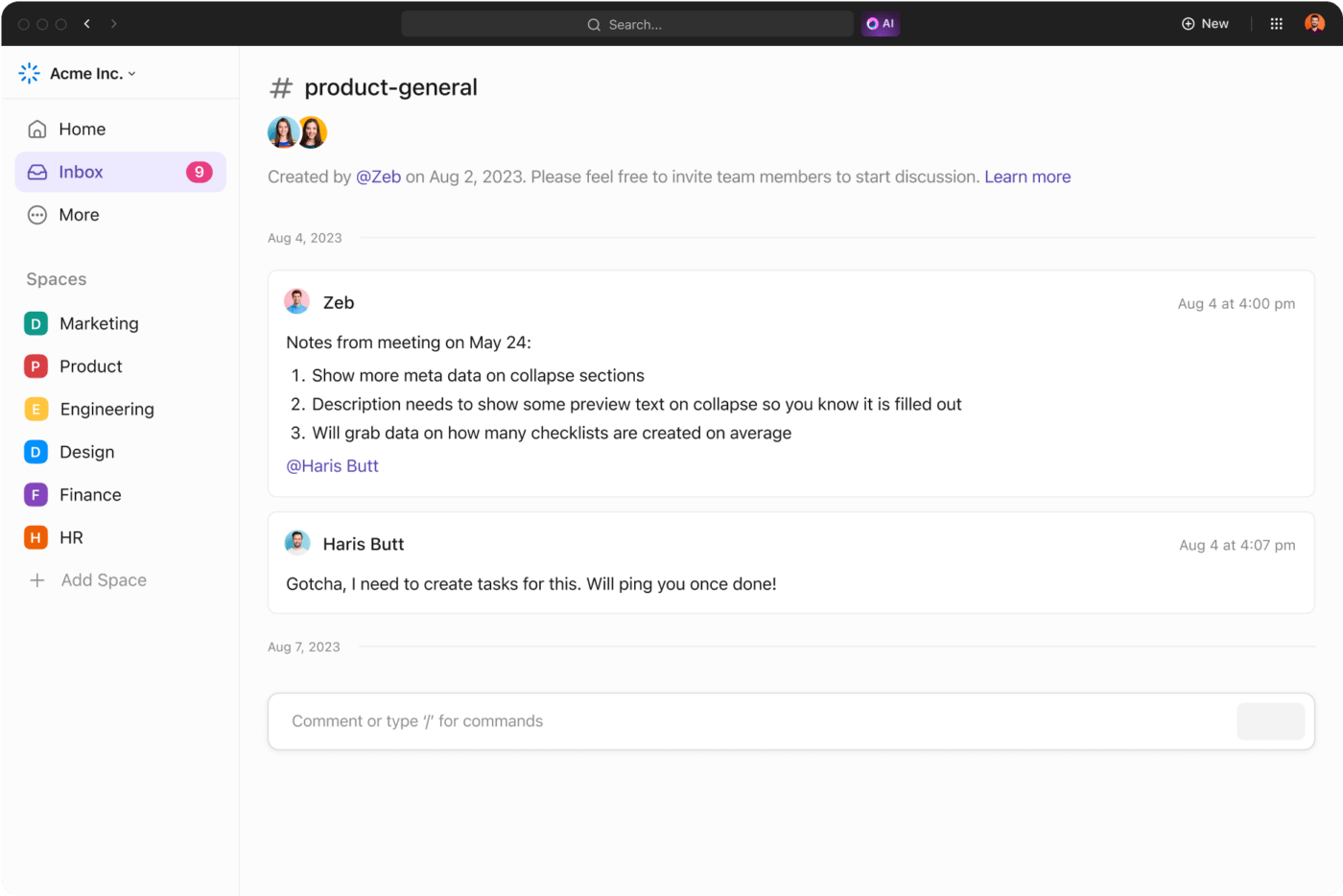Semua orang telah mendengar tentang pentingnya etos kerja. Etos kerja yang kuat akan mendorong lintasan karier Anda dan mempersiapkan Anda untuk sukses, sementara etos kerja yang lemah dapat menyabotase tujuan Anda, mengurangi produktivitas, dan membahayakan karier Anda.
Namun, apa sebenarnya yang dimaksud dengan etos kerja yang baik? Lebih penting lagi, bagaimana cara meningkatkan etos kerja Anda dan membangun keterampilan yang kuat yang diperlukan untuk meningkatkan produktivitas Anda, mencapai tujuan Anda, dan menjadi sukses?
Apa itu Etos Kerja?
Etos kerja mengacu pada nilai dan sikap yang memandu pendekatan Anda terhadap pekerjaan Anda.
Etos kerja yang baik mencakup berbagai perilaku positif, termasuk:
- Keandalan
- Dedikasi
- Produktivitas
- Integritas
Etos kerja yang kuat muncul ketika seseorang menunjukkan perilaku tersebut dalam jangka panjang, yang secara konsisten menunjukkan komitmen terhadap pekerjaan berkualitas tinggi dalam kehidupan profesional mereka.
Tentu saja, seseorang dapat bekerja keras namun melakukan pekerjaannya secara tidak efisien atau menghasilkan hasil yang tidak efektif. Etos kerja yang kuat menggabungkan kerja keras dengan keinginan untuk selalu melakukan pekerjaan sebaik mungkin.
Setiap industri menghargai etos kerja yang kuat, sehingga mengembangkannya dapat membantu Anda membangun karier yang lebih sukses.

Mengapa Etos Kerja yang Kuat itu Penting?
Perusahaan lebih suka mempekerjakan seseorang dengan etos kerja yang kuat karena hal ini akan meningkatkan kinerja pekerjaan. Karyawan dengan etos kerja yang baik mengerahkan jenis upaya dalam kehidupan profesional mereka yang diterjemahkan ke dalam kualitas kerja yang lebih tinggi dan efisiensi yang lebih besar. Sifat-sifat ini secara langsung berdampak pada kesuksesan organisasi apa pun, apa pun industrinya.
Jika Anda ingin maju dalam karier Anda, menjadi sangat berharga bagi perusahaan Anda adalah cara yang tepat. Anda akan berada di posisi yang lebih baik untuk dipromosikan atau dipercaya dengan tanggung jawab yang lebih besar dengan menunjukkan inisiatif dan dedikasi.
Pentingnya etos kerja yang kuat tidak hanya bagi karyawan secara individu. Ketika semua anggota tim menunjukkan etika kerja yang baik, hal ini akan berdampak pada peningkatan budaya perusahaan secara keseluruhan. Dan ketika anggota tim baru bercita-cita untuk mencapai standar keunggulan, menumbuhkan etos kerja yang kuat pada karyawan menjadi upaya yang bermanfaat bagi manajemen.
Karakteristik Utama dari Etos Kerja yang Kuat
Ada banyak hal yang harus dilakukan untuk menunjukkan etos kerja yang kuat. Beberapa karakteristik utama yang digunakan perusahaan untuk menilai etos kerja meliputi:
- Keandalan dan ketergantungan: Secara konsisten tepat waktu dan memenuhi tenggat waktu sehingga orang lain tahu bahwa mereka dapat mengandalkan Anda
- Dedikasi dan komitmen: Menunjukkan dedikasi yang kuat terhadap pekerjaan Anda dan kemauan untuk melakukan lebih dari yang diharapkan dari Anda
- Produktivitas dan kualitas kerja: Menjadi efisien dan efektif dalam tugas Anda dan selalu mengincar hasil yang berkualitas tinggi
- Profesionalisme: Mempertahankan sikap profesional dan perilaku, cara berpakaian, dan komunikasi yang sesuai
- Integritas dan kejujuran: Menjunjung tinggi prinsip-prinsip moral yang kuat, jujur dalam interaksi Anda, dan bertanggung jawab atas tindakan Anda
- Kerja tim dan kerja sama: Menunjukkan kemampuan untuk bekerja sama dengan baik dengan orang lain, berkomunikasi secara efektif, dan membangun hubungan yang kuat dengan anggota tim
- Inisiatif dan motivasi diri: Membantu orang lain kapan pun memungkinkan dan berusaha untuk berkontribusi dengan cara apa pun yang Anda bisa
- Ketahanan dan kemampuan beradaptasi: Menunjukkan kemampuan untuk mengatasi tantangan, beradaptasi dengan perubahan, dan pulih dari kemunduran
- Pembelajaran berkelanjutan: Bersedia mempelajari keterampilan baru seiring dengan perkembangan pekerjaan Anda dan tetap menjadi yang terdepan dalam tren teknologi

Tantangan di Tempat Kerja yang Berdampak pada Etos Kerja
Tidak selalu mudah untuk mempertahankan etos kerja yang baik. Sejumlah tantangan dapat muncul di tempat kerja, sehingga sulit untuk mempertahankan antusiasme dan dedikasi yang dibutuhkan. Cara terbaik untuk mengatasinya adalah dengan menyadari tantangan-tantangan tersebut dan mempersiapkan mental untuk menghadapinya:
- Masalah keseimbangan antara pekerjaan dan kehidupan pribadi: Banyak orang yang terlalu fokus pada pekerjaan sehingga kehidupan pribadinya terganggu. Meskipun hal ini terlihat seperti etos kerja yang kuat, kelelahan yang dihasilkan dapat membunuh produktivitas
- Kurangnya pengakuan atau penghargaan: Kegagalan untuk mengakui pekerjaan yang baik dapat mengakibatkan etika kerja yang buruk dari waktu ke waktu
- Tujuan atau ekspektasi yang tidak jelas: Etos kerja yang baik membutuhkan fokus pada tugas. Arah yang tidak jelas dapat menyulitkan untuk memulai
- Manajemen atau kepemimpinan yang buruk: Kepemimpinan yang tidak efektif dapat menyebabkan tenaga kerja yang kurang termotivasi dan kurang mendapatkan bimbingan dan dukungan
- Budaya tempat kerja yang beracun: Sebagaimana beberapa orang yang positif dapat meningkatkan suasana hati semua orang, terlalu banyak orang yang negatif juga dapat menguras tenaga
- Gangguan teknologi: Di zaman yang penuh dengan gangguan digital, bahkan alat yang berhubungan dengan pekerjaan pun dapat menjadi gangguan jika tidak dikelola dengan baik
- Kurangnya otonomi: Meskipun karyawan membutuhkan arahan untuk melakukan yang terbaik, semua orang ingin merasa mandiri. Terlalu banyak manajemen mikro dapat menghambat antusiasme
10 Tips untuk Mengembangkan Etos Kerja yang Kuat
Apa pun tahap karier Anda, peran Anda di perusahaan, atau jenis bisnis yang Anda geluti, siapa pun dapat meningkatkan etos kerja mereka. Semuanya dimulai dengan berfokus pada keterampilan etos kerja terbaik yang membantu mencapai tujuan Anda.
1. Menumbuhkan disiplin diri dan fokus
Etos kerja yang kuat membutuhkan disiplin diri dan fokus-saking kuatnya, hampir semua tips dalam daftar ini akan berhubungan dengan membangun salah satunya. Disiplin diri adalah memprioritaskan tugas-tugas penting Anda di atas tugas-tugas yang kurang penting. Fokus adalah kemampuan untuk menghindari gangguan setelah pekerjaan dimulai.
Selain apa yang akan Anda pelajari di bagian ini, Anda dapat mengembangkan disiplin diri dengan berbagai cara. Karena setiap orang merespons secara berbeda terhadap teknik dan motivasi yang berbeda, menemukan metode yang cocok untuk Anda tidak bisa dianggap remeh. Disiplin diri dan fokus adalah landasan untuk menggunakan waktu Anda dengan bijak dan mengatasi etos kerja yang buruk.

2. Menetapkan tujuan yang jelas dan dapat dicapai
Hambatan utama untuk memiliki etos kerja yang kuat adalah tidak tahu harus memulai dari mana.
Baru saja memulai, namun Anda merasa seharusnya Anda bisa mencapai lebih banyak. Hal ini menciptakan rasa frustrasi yang dapat menghambat Anda untuk termotivasi lagi keesokan harinya.
Solusi untuk kedua masalah ini adalah meluangkan waktu untuk menetapkan tujuan yang jelas dan dapat dicapai. Dengan memecah tugas-tugas besar menjadi segmen-segmen yang lebih kecil dan mempelajari seberapa banyak yang dapat Anda selesaikan dalam satu hari, Anda dapat dengan percaya diri mengisi hari Anda, meningkatkan produktivitas dan bukannya frustrasi.
ClickUp Goals merupakan cara yang sangat baik untuk melacak kemajuan Anda dalam mencapai tujuan-tujuan ini dan menjaga diri Anda tetap fokus. Jika Anda kesulitan menetapkan tujuan, coba gunakan templat penetapan tujuan untuk membantu Anda memulai.
3. Mengatur tugas dan prioritas harian
Bagian penting dalam menetapkan tujuan yang masuk akal adalah memahami tugas yang diperlukan.
Untuk mengembangkan etos kerja yang kuat, pertama-tama kenali tugas-tugas terpenting yang dibutuhkan oleh pekerjaan Anda. Kemudian, prioritaskan tugas berdasarkan dampaknya terhadap proyek Anda. Anda akan meningkatkan kemampuan manajemen waktu dengan membangun disiplin untuk mengerjakan tugas-tugas penting terlebih dahulu.
Tugas ClickUp adalah alat bantu manajemen tugas yang luar biasa untuk membantu Anda menyelesaikan tugas secara efisien.
Platform ini memungkinkan Anda untuk mengatur dan memprioritaskan tugas serta menugaskan anggota tim untuk mengerjakannya. Platform ini memberikan gambaran umum tingkat tinggi tentang semua tugas proyek dan memudahkan pelacakannya. Kepala proyek dapat memantau karyawan dan membina karyawan yang berdisiplin tinggi.
4. Mengembangkan rutinitas harian
Jika Anda melihat kebiasaan orang-orang dengan etika kerja yang kuat, Anda akan menemukan bahwa mereka sangat konsisten. Mereka memiliki jadwal yang mereka patuhi, selalu memenuhi tenggat waktu tepat waktu, dan menindaklanjuti janji-janji mereka.
Etos kerja yang baik adalah sebuah kebiasaan. Dan kebiasaan membutuhkan konsistensi untuk terbentuk.
Ketika Anda mengembangkan rutinitas harian yang dapat Anda ikuti, Anda menyiapkan diri Anda untuk membangun kebiasaan kerja keras yang akan meningkatkan kinerja pekerjaan Anda dan meningkatkan peluang Anda untuk menikmati karier yang sukses. Meskipun pada awalnya rutinitas seperti itu mungkin sulit dilakukan, pada akhirnya akan menjadi kebiasaan.
5. Menggunakan pelacakan waktu untuk meningkatkan akuntabilitas
Hampir semua orang merasa tidak ada cukup waktu dalam sehari, dan mudah untuk bertanya-tanya ke mana perginya semua waktu. Hal ini terutama berlaku bagi mereka yang memiliki etos kerja yang buruk. Sangat mudah bagi gangguan kecil sepanjang hari untuk menggerogoti waktu produktivitas Anda.
Namun, jika Anda mengadopsi sikap yang lebih profesional dan melacak waktu Anda untuk setiap tugas, Anda akan melihat ke mana perginya menit-menit yang hilang tersebut. Kemudian, seiring dengan meningkatnya kemampuan manajemen waktu Anda, begitu pula dengan kemampuan etos kerja Anda.
Alat Pelacakan Waktu ClickUp memudahkan proses ini, memberdayakan Anda untuk menyelesaikan lebih banyak hal setiap hari, menyelesaikan tugas dengan cepat, dan secara konsisten memenuhi tenggat waktu.

6. Bangga dengan pekerjaan yang Anda lakukan
Orang kurang termotivasi untuk melakukan tugas yang tidak mereka sukai. Salah satu cara untuk mengatasi hal ini adalah dengan melakukan pendekatan pada setiap tugas dengan komitmen untuk mencapai yang terbaik. Bahkan jika Anda tidak tertarik dengan tugas itu sendiri, belajarlah untuk melihat pekerjaan berkualitas tinggi yang Anda lakukan sebagai sesuatu yang bisa dibanggakan.
Mereka yang memiliki etos kerja yang kuat belajar untuk tetap fokus dan disiplin, mendorong kualitas, dan mengembangkan rasa kepemilikan atas hasil pekerjaan mereka. Ketika Anda bertekad untuk melampaui ekspektasi dalam setiap tugas yang Anda lakukan, komitmen menjadi bagian penting dari faktor motivasi, yang memungkinkan Anda untuk termotivasi ketika Anda mungkin tidak termotivasi.
7. Mempertahankan sikap dan energi yang positif
Terkadang, Anda mungkin memulai hari dengan niat untuk mempertahankan etos kerja yang kuat dan berusaha memberikan hasil yang akan membuat diri Anda dan tim Anda bangga, hanya untuk mengalami kemunduran yang menghancurkan suasana hati. Menghadapi hal ini akan lebih mudah jika Anda belajar untuk bangga dengan pekerjaan Anda karena keinginan untuk melewatinya dan tetap memberikan hasil yang terbaik tetap ada.
Namun untuk mempelajari cara menghadapi kemunduran, Anda harus memiliki pola pikir yang tepat ketika hal itu terjadi.
Kemunduran adalah kesempatan untuk berkembang. Kemunduran itu menghadirkan masalah yang mungkin akan Anda alami lagi di kemudian hari. Dengan mempertahankan semangat untuk terus maju dan mengatasi masalah secara langsung, Anda akan terhindar dari tekanan yang sama saat masalah tersebut muncul lagi.
8. Mendorong kolaborasi dan kerja sama tim
Kolaborasi dan kerja sama tim adalah bagian besar dari tenaga kerja yang produktif. Bekerja dengan karyawan lain dapat membantu Anda membangun etos kerja yang kuat dengan dua cara.
Pertama, memiliki orang lain yang dapat diandalkan akan membuat Anda lebih mungkin untuk menyelesaikan tugas-tugas Anda. Selain menjadi pemain tim yang baik, Anda akan menemukan bahwa kemampuan untuk bergantung pada rekan kerja saat keadaan menjadi sulit dapat membantu Anda melancarkan hambatan terhadap tujuan etos kerja Anda.
Fitur kolaborasi ClickUp memberikan setiap anggota tim alat untuk berkomunikasi secara efektif dan menjadi rekan kerja yang baik. Fitur-fitur ini dapat membantu membangun dan mempertahankan budaya perusahaan yang memotivasi tim, menumbuhkan rasa hormat satu sama lain, dan komitmen bersama untuk mencapai tujuan perusahaan.

9. Merangkul pembelajaran dan peningkatan berkelanjutan
Untuk mencapai kesuksesan jangka panjang dalam karier apa pun, Anda harus merangkul gagasan pembelajaran dan pengembangan berkelanjutan. Saat ini, sifat pekerjaan berubah dengan cepat. Mengikuti perkembangan teknologi dan metodologi akan membantu Anda mempertahankan kemampuan Anda untuk melakukan pekerjaan secara profesional.
Selain memungkinkan Anda untuk mengikuti perkembangan secara profesional, mengikuti perubahan dan mempelajari keterampilan baru akan membantu mencegah Anda merasa frustrasi dalam karier yang perlahan-lahan bergeser dari keahlian Anda. Tanpa disiplin untuk terus belajar, kurangnya pengetahuan dapat dengan mudah menurunkan etos kerja Anda.
10. Meluangkan waktu untuk refleksi dan umpan balik secara teratur
Banyak hal yang telah kita bahas yang melibatkan kejujuran tentang diri Anda dan kemampuan Anda.
Menetapkan tujuan yang realistis, misalnya, mengharuskan Anda untuk memahami apa yang Anda mampu dan apa yang tidak. Saat pertama kali menetapkan tujuan, Anda mungkin akan salah. Anda mungkin menemukan bahwa Anda seharusnya bisa melakukan lebih banyak atau mungkin malah tertinggal dalam pekerjaan. Jika Anda menyisihkan waktu untuk mengidentifikasi area kekuatan dan kelemahan, ketidakkonsistenan ini akan hilang.
Jenis refleksi ini harus berasal dari sumber internal dan eksternal.
Anda harus melihat pekerjaan Anda dan mengevaluasinya sendiri dengan jujur. Namun, jangan abaikan pentingnya mendapatkan umpan balik dari luar. Rekan kerja mungkin melihat kekuatan atau kelemahan yang tidak Anda sadari, dan Anda harus mendengarkan umpan balik tersebut secara terbuka.
Cara Memotivasi Karyawan untuk Meningkatkan Etos Kerja Mereka
Manajemen yang buruk dapat menyebabkan etos kerja yang buruk. Demikian pula, setiap pemimpin tim atau manajer dapat mengambil langkah-langkah untuk membangun karyawan yang lebih baik, mendorong sikap positif, dan meningkatkan etos kerja di perusahaan.
Mengenali dan menghargai upaya
Meskipun beberapa karyawan secara alami ambisius dan akan selalu memberikan yang terbaik, namun ada juga yang membutuhkan dorongan. Ketika Anda mengakui dan merayakan pencapaian karyawan Anda, Anda memberi mereka alasan untuk mengulangi pencapaian tersebut. Selain memberikan umpan balik positif, pertimbangkan untuk menerapkan program pengakuan atau penghargaan bagi karyawan.

Menumbuhkan budaya yang positif dan inklusif
Pengakuan dapat membantu karyawan merasa dihargai, namun untuk mendapatkan etos kerja terbaik dari mereka, mereka harus merasa menjadi bagian dari tim.
Promosikan rasa kebersamaan dan rasa memiliki di tempat kerja, dan luangkan waktu untuk memastikan bahwa setiap karyawan merasa dihargai. Hal ini akan menciptakan budaya kerja sama tim dan kolaborasi yang membantu membuat semua orang termotivasi.
Memberikan peluang untuk tumbuh dan berkembang
Tidak ada yang dapat membunuh motivasi dan mendorong etos kerja yang buruk, selain merasa terjebak dalam pekerjaan yang buntu. Karyawan harus ditawari program pelatihan dan pengembangan profesional untuk membantu mereka memajukan karier mereka. Manajemen juga harus mendiskusikan tujuan karier dengan karyawan dan membantu mereka mencapai tujuan tersebut.
Tingkatkan Etos Kerja Individu dan Perusahaan dengan ClickUp
Sebagai platform produktivitas lengkap, ClickUp menyediakan solusi lengkap untuk membangun etos kerja yang baik di semua level. Alat bantu penetapan tujuan akan membantu semua orang tetap terorganisir, sementara alat bantu manajemen waktu membuat semua orang tetap bekerja.
Untuk mendorong kerja tim dan kerja sama, ClickUp membangun alat kolaborasi ke dalam setiap aspek perangkat lunak mereka. Coba ClickUp hari ini dan lihat seberapa jauh Anda atau tim Anda dapat menjadi lebih produktif dan bagaimana alat yang tepat dapat mendukung etos kerja yang kuat dan meningkatkan produktivitas.

